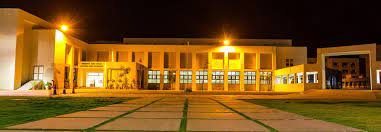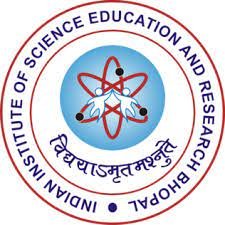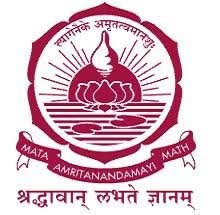Physics graduates have a wide range of career opportunities. They can work in research laboratories, technology companies, aerospace and defense industries, energy sectors, and educational institutions. Physicists are involved in cutting-edge research, developing new technologies, and solving
Career & Job Opportunities for BS-MS in Physics Course
A Bachelor of Science-Master of Science (BS-MS) program in Physics is an integrated academic pathway that combines undergraduate and postgraduate studies in the field of physics. This program provides students with a deep understanding of the fundamental principles of physics, advanced mathematical and analytical skills, and hands-on experience in experimental research. Graduates of BS-MS programs in Physics are well-prepared for diverse career opportunities in industries such as research and development, technology, education, and healthcare. In this article, we will explore the various career paths and job opportunities available to BS-MS graduates in Physics.
BS-MS graduates in Physics Career Opportunities
BS-MS graduates in Physics have diverse career opportunities. They can work as research scientists, data analysts, or educators. Their expertise in experimental and theoretical physics is in demand across sectors, including academia, technology, and research institutions. Graduates can contribute to advancements in various scientific disciplines, from astrophysics to materials science, ensuring a wide range of rewarding career paths.
-
Physicist: Physicists are professionals who conduct research to understand the fundamental laws of the universe. They work in various subfields of physics, including theoretical physics, experimental physics, and applied physics. Physicists often work in academia, research institutions, and industries such as aerospace and defence.
-
Research Scientist: Research scientists in Physics conduct experiments, studies, and research projects in academia, research institutions, and private research organizations. They contribute to advancements in physics and related fields, including materials science and engineering.
-
Data Scientist: Data scientists use mathematical and statistical techniques to analyze large datasets and extract valuable insights. They work in technology companies, financial institutions, healthcare organizations, and research institutions.
-
Engineer: Physicists often pursue careers as engineers, specializing in fields such as electrical engineering, mechanical engineering, and aerospace engineering. They design and develop new technologies, products, and systems.
-
Educator/Teacher: Physics educators teach at the high school or college level, educating students in the principles of physics and fostering an understanding of scientific concepts.
-
Medical Physicist: Medical physicists work in healthcare settings, ensuring the safe and effective use of radiation therapy and medical imaging equipment. They collaborate with healthcare professionals to treat patients.
-
Quantitative Analyst (Quant): Quants use mathematical models and statistical analysis to inform financial and risk management decisions. They work in investment banks, hedge funds, and asset management firms.
-
Consultant: Physics graduates with strong analytical and problem-solving skills can work as consultants, providing expertise in various fields, including technology, finance, and engineering.
-
Nuclear Physicist: Nuclear physicists study the behaviour of atomic nuclei and their interactions. They may work in research institutions, nuclear power plants, or government agencies.
-
Biophysicist: Biophysicists apply physics principles to biological systems, studying topics such as protein structure, DNA dynamics, and cellular processes. They work in research, academia, and the pharmaceutical industry.
BS-MS graduates in Physics Job Opportunities
Job opportunities for BS-MS graduates in Physics encompass roles as research scientists, data analysts, and educators. They can find employment in academia, technology, and research institutions. Their expertise in experimental and theoretical physics is in demand across various sectors, offering diverse and impactful job prospects, from contributing to groundbreaking discoveries to teaching and mentoring the next generation of scientists.
-
Physicist: Physicists can find job opportunities in universities, research institutions (e.g., CERN, Fermilab), government agencies (e.g., National Aeronautics and Space Administration), and industries like aerospace and defence.
-
Research Scientist: Research scientists in Physics often work in academia, research institutions (e.g., Lawrence Berkeley National Laboratory), and private research organizations (e.g., IBM Research).
-
Data Scientist: Data scientists are employed by technology companies (e.g., Google, Facebook), financial institutions (e.g., Goldman Sachs, JPMorgan Chase), healthcare organizations, and research institutions.
-
Engineer: Physicists turned engineers find opportunities in engineering firms (e.g., Lockheed Martin, Boeing), technology companies (e.g., Apple, Intel), and government agencies (e.g., NASA).
-
Educator/Teacher: Physics educators can teach in K-12 schools, colleges, and universities, shaping the future of physics education.
-
Medical Physicist: Medical physicists work in hospitals, cancer treatment centres, and healthcare organizations to ensure the safe and effective use of radiation therapy and medical imaging.
-
Quantitative Analyst (Quant): Quants are employed by investment banks (e.g., Goldman Sachs, Morgan Stanley), hedge funds (e.g., Renaissance Technologies), and asset management firms (e.g., BlackRock).
-
Consultant: Physics graduates with strong analytical skills can work as consultants in various industries, providing expert advice and problem-solving services.
-
Nuclear Physicist: Nuclear physicists find job opportunities in research institutions, nuclear power plants, government agencies (e.g., the Department of Energy), and nuclear research facilities.
-
Biophysicist: Biophysicists work in research institutions, pharmaceutical companies (e.g., Pfizer, Genentech), and academia, contributing to our understanding of biological systems.
 5 Years
5 Years
 Post Graduate
Post Graduate
 Science
Science
 Full Time
Full Time











 back
back